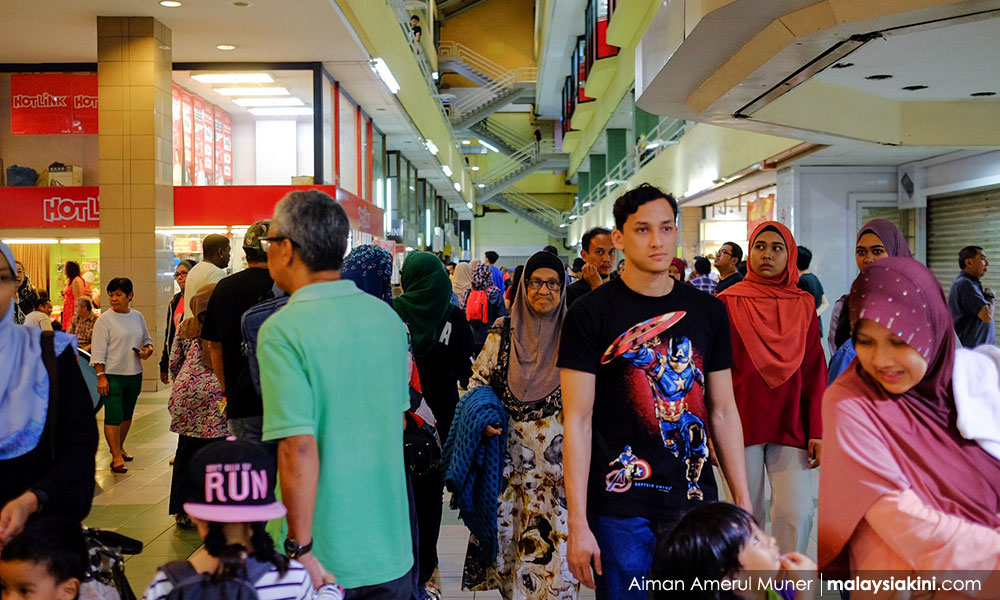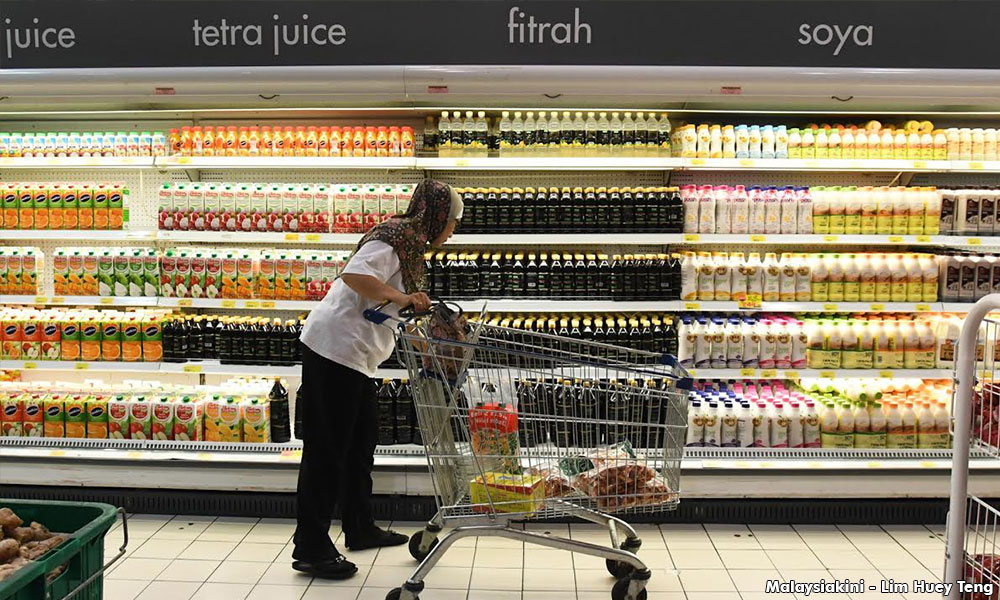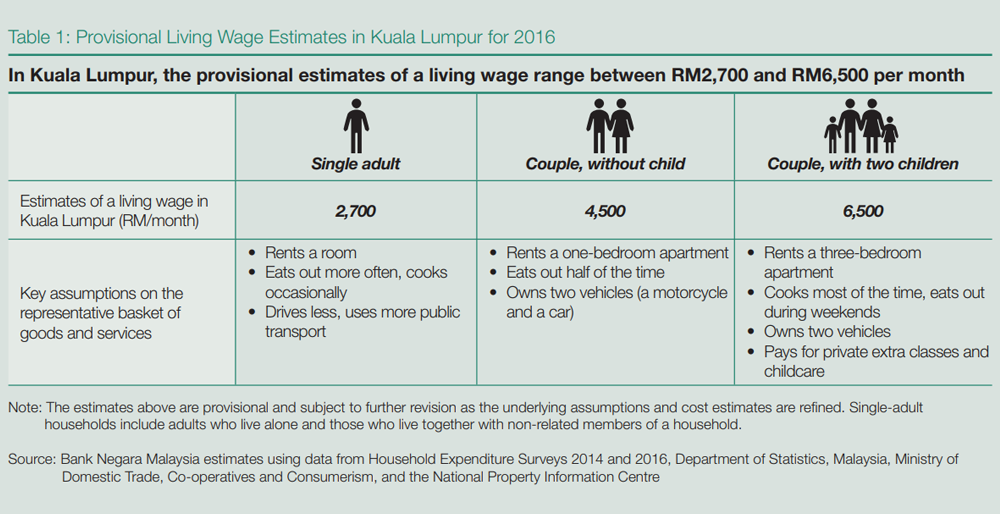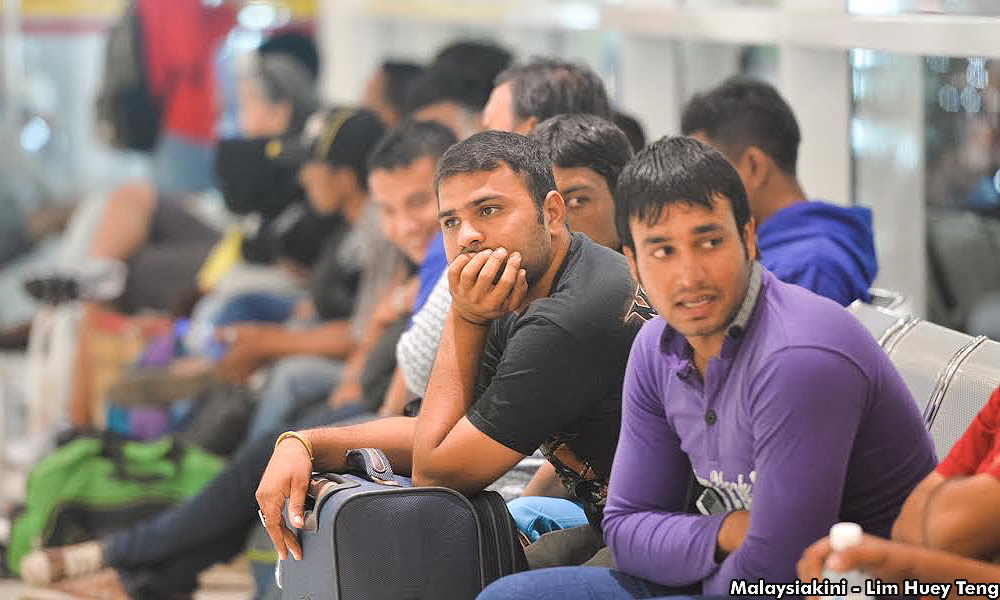
A QUESTION OF BUSINESS | Yes, we have almost eliminated poverty in Malaysia, but do the majority of us have enough money to live comfortably and play our role in society?
Government officials are fond of blithely saying that we have achieved much over the years because the incidence of poverty has fallen from 49.3% in 1970 to a mere 0.4% now. But that statement is rendered meaningless when what is defined as poor is revealed.
I had trouble finding what the poverty line for Malaysia is - no one seemed to really care what that was despite quoting widely the latest poverty rate which indicated that poverty had been virtually wiped out in Malaysia. Eventually, I found one from the Economic Transformation Programme website.
This defines the poor as people who “fall short of certain standards of consumption which are deemed necessary to maintain ‘decency’ in society, for example, those who cannot afford healthcare and education. Households with average monthly incomes of less than RM760 in Peninsular Malaysia, less than RM1,050 in Sabah and less than RM910 in Sarawak are defined as poor.” Let’s just round that off to a nice easy cut-off figure - RM800 per month in household income.
Now, I ask you, if a household earned RM801, would it no longer be poor? Certainly not. If the average household is considered to be four people is RM200 per person enough? With that, you have to provide food, shelter clothing, health costs, education, etc. By my reckoning, a household can be earning RM800 and still be extremely poor.
When we are talking about poverty levels, we are talking about subsistence. It would be more accurate to say, in the common usage of language that hardly anybody in Malaysia starves these days, not that they are not poor. We can’t even say that there is no malnutrition among many. Such statistics are simply and conveniently unavailable.

The question to ask these days is whether we have a living wage - enough income for us to have a meaningful life free from need and not whether we are above the poverty line - it really does not take much for a resource-rich country like Malaysia to eliminate poverty the way it is defined.
Unable to make ends meet
But is there a living wage for a vast majority of Malaysians? Unfortunately not as a study by the central bank, Bank Negara Malaysia (BNM), shows. This is a timely study, contained in BNM’s latest annual report, which indicates how, despite good economic growth, many people have to struggle to make ends meet.
The study talks about a living wage which centres around the concept of a ‘minimum acceptable’ standard of living which goes beyond being able to afford the necessities, such as food, clothing, and shelter.
“This standard of living should include the ability to meaningfully participate in society, the opportunity for personal and family development, and freedom from severe financial stress. At the same time, it should reflect needs, not wants. It does not capture the cost of lifestyle, which is the spending to fulfil the desires for an aspirational living standard.”
The study estimated a living wage for various categories of people in Kuala Lumpur by using a basket of goods and services, and deriving the costs of these (see table).

The table shows that in 2016 for a single working adult in Kuala Lumpur, who rents a room, eats out more often than cooks, drives less and uses more public transport, the minimum living wage is RM2,700 a month; a household income of RM4,500 a month for a couple without children; and RM6,500 a month for a couple with two children.
This bears out what many have suspected all along - that the poverty line income is irrelevant and that most people require a living wage which is far in excess of that. The RM6,500 minimum living wage for Kuala Lumpur is just over eight times the poverty line income for Malaysia! Even a graduate who on employment gets about RM2,400 a month in Kuala Lumpur, gets a living wage below the minimum level.
According to the Statistics Department, the median household income (half of the households earn less than this) for Kuala Lumpur in 2016 was RM9,073 compared to the RM6,500 minimum living wage for KL calculated by the study.
That would indicate that a significant number of households live below this threshold. The BNM study indicated that up to 27% of KL households could be living below the minimum living wage level. It would be interesting to see the figures for the whole country as Kuala Lumpur is far more highly developed than the rest. Note also that the RM6,500 is higher than the Malaysian median household income of RM5,228 a month.
Low-wage policies
Clearly, any improvement in wage levels has to be accompanied by productivity improvements but this has been hampered by an adoption of low-wage economic policies exemplified by large imports of cheap labour as I pointed out in this article.

In the same annual report, BNM presents another study which indicates that a low-wage policy led to depressed wages and inhibited productivity improvements badly needed to support higher wages.
“Currently, while Malaysia has made progress on several fronts, there remains a broad reliance on low-cost production models that lean on low-skilled labour while keeping a lid on wages to maintain business margins. The relative ease of obtaining low-skilled foreign workers in Malaysia contributes to these tendencies,” it said.
“A prerequisite to achieving a high income and (becoming a) developed nation is the progression to a ‘high-productivity, high-income’ workforce. Fundamentally, Malaysia would benefit from a clear shift away from an economy that is input-based and dependent on cost suppression as a source of competitive strength, to one that competes on the quality of its labour force, technical skills and product offerings.
“Such a shift requires the implementation of well-aligned, coordinated and consistent public policies. These policies encompass talent development, research and development, and industrial upgrading initiatives. Importantly, these policies need to be coherent, well-communicated and mutually-reinforcing.”
Both studies indicate that if there is going to be further meaningful development in Malaysia, which includes as well a broad-based improvement in the living standards of most of the people, there needs to be major shift in policy-making and implementation by the government at all levels in furtherance of a competitive, competent economy based on high quality education and training.
Sadly, there is no indication that the current government is equipped, willing or able to make the necessary changes.
P GUNASEGARAM says that not only does education maketh a man, it makes a whole nation - the right kind of education that is. E-mail: t.p.guna@gmail.com. - Mkini



No comments:
Post a Comment
Note: Only a member of this blog may post a comment.